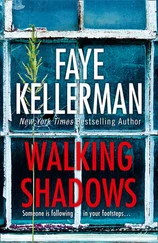Lyndsay Faye - Dust and Shadow
Здесь есть возможность читать онлайн «Lyndsay Faye - Dust and Shadow» весь текст электронной книги совершенно бесплатно (целиком полную версию без сокращений). В некоторых случаях можно слушать аудио, скачать через торрент в формате fb2 и присутствует краткое содержание. Жанр: Старинная литература, на английском языке. Описание произведения, (предисловие) а так же отзывы посетителей доступны на портале библиотеки ЛибКат.
- Название:Dust and Shadow
- Автор:
- Жанр:
- Год:неизвестен
- ISBN:нет данных
- Рейтинг книги:5 / 5. Голосов: 1
-
Избранное:Добавить в избранное
- Отзывы:
-
Ваша оценка:
- 100
- 1
- 2
- 3
- 4
- 5
Dust and Shadow: краткое содержание, описание и аннотация
Предлагаем к чтению аннотацию, описание, краткое содержание или предисловие (зависит от того, что написал сам автор книги «Dust and Shadow»). Если вы не нашли необходимую информацию о книге — напишите в комментариях, мы постараемся отыскать её.
Dust and Shadow — читать онлайн бесплатно полную книгу (весь текст) целиком
Ниже представлен текст книги, разбитый по страницам. Система сохранения места последней прочитанной страницы, позволяет с удобством читать онлайн бесплатно книгу «Dust and Shadow», без необходимости каждый раз заново искать на чём Вы остановились. Поставьте закладку, и сможете в любой момент перейти на страницу, на которой закончили чтение.
Интервал:
Закладка:
I felt a growing revulsion at the conversation, but Dr. Agar appeared profoundly intrigued. “He seeks out women who have wronged him and enacts these terrible crimes out of sheer hatred?” I questioned.
Holmes shook his head. “I do not believe he knows them. It is my working hypothesis that this man kills perfect strangers. In fact, I have been led to believe that we are on the trail of a complete madman who is for all appearances an ordinary person.”
I stared at him aghast. “I could well believe that the fiend is mad,” I protested, “but what you suggest is impossible. There must be another motive behind the deaths of these women. The mad do not walk among the sane unremarked.”
“Do they not?” he queried, one brow tilted toward the ceiling.
“No,” I insisted irritably. “The merely eccentric are as sane as you or I, but as for a man who butchers the most pitiable of our populace without reason or foreknowledge—can you seriously believe such malice could go about the business of day-to-day life without exciting alarm?”
“Do not ask me. That is what I wish to inquire of Dr. Agar,” Holmes replied, turning the force of his steely gaze upon the psychologist standing before the dwindling fire. “Is it possible, in your professional opinion, for a madman to enact a faultless pretense of rational humanity?”
Dr. Agar moved to his bookshelf and selected a slim volume. “I begin to guess at your meaning, Mr. Holmes. You refer to the London Monster.”
Holmes swiftly indicated a passage from his commonplace book. “I refer not only to the London Monster, although he plays a telling role. Nearly a century ago—April seventeen eighty-eight, London: first appearance of the London ‘Monster.’ Approximately fifty women knifed on the streets between the years of eighty-eight and ninety. Suspect never caught. Mark that, Watson. Moving to the Continent; Innsbruck, eighteen twenty-eight: multiple women approached and stabbed with a common pocketknife. Case never closed. Bremen, eighteen eighty: a hairdresser slashed the breasts of no fewer than thirty-five women in broad daylight before he was apprehended. All are examples of what I believe could be termed a deeply morbid erotic mania.”
“Your chain of reasoning is rather terrifying, sir,” said Dr. Agar.
“What chain of reasoning, Holmes?” I questioned apprehensively.
“If I can discover a link connecting the victims—shared knowledge of a secret is an excellent example—the hypothesis will, blessedly, shatter,” he returned. “But I have repeated to myself Cui bono ? until I can feel the words burned upon my brain, and the only answer is No one. For now, it is clear that any man committing so many motiveless crimes must necessarily be mad. And yet, in order to continue freely committing them…”
“The culprit cannot have appeared to be mad,” finished Dr. Agar.
“So I put it to you, Dr. Agar,” Holmes concluded grimly. “Is such a thing possible?”
“It is a very difficult question to answer with any degree of assurance,” he replied carefully. “After all, is mental illness a sickness of the soul, degeneracy of stock, or a defect of the brain? What you propose is an entirely new form of madness—a monomania lurking beneath a rational mind, aiding itself and disguising itself. Your idea comes closer to the classical definition of pure malevolence than any maniac who lashes out with a frenzied knife. You speak of a complete moral degeneracy, assisted by an affable exterior and a shrewd intelligence.”
“Precisely,” said Sherlock Holmes.
“I’m afraid I think it entirely possible,” Dr. Agar replied.
“Then there is nothing for it,” said my friend. “My thanks for your assistance. If you will excuse me, I have a deal of work ahead of me. Payment for your past services is there, on the table.”
Dr. Agar quickly attempted to return the notes. “Mr. Holmes, as your neighbour, I would not dream of exacting payment over an emergency.”
“Then consider it a consulting fee,” my friend smiled. “This way, Watson. We’ll not intrude further upon Dr. Agar’s time.”
“Thank you, Mr. Holmes,” said the affable young fellow at the door. “If you should feel the need to intrude again, I beg that you will not hesitate! I treated three patients this afternoon—two for insomnia, and one for an ill-disguised preoccupation with opiates. Your visit has quite redeemed the day.”*
We waved to Dr. Agar and strolled the few steps back to our own door.
“You appear disturbed, Dr. Watson,” Holmes remarked.
“I cannot readily believe such men exist outside the realm of fiction designed to horrify the reader,” I admitted, casting about for my key.
“It is difficult to fathom, I know, for I required weeks to even consider such a nightmare possible.”
“And you are sure our man is of a kind?” I persisted as we made our way up the stairs.
“I have no doubt of it.”
“I cannot begin to think what steps you will take. It is a monster you describe, Holmes.”
“He is neither a monster nor a beast, but something far more dangerous. I fear that men, when possessed of both utter depravity and absolute conviction, are far more deadly than either. And I begin to fear that such men are nearly impossible to find. But I’ll do it, Watson. I shall have him. I swear to you it shall be done.” Holmes nodded a good night and then, without another word, vanished into the confines of his room.
CHAPTER SIXTEEN The Problem of Whitechapel
The following morning, I descended from my bedroom to discover Holmes had already finished his breakfast. He had then, I gathered, occupied himself by amassing all our cushions, piling them beneath the settee, supplying himself with an unholy reserve of cigarettes, and then draping himself on the floor with all the incense-shrouded dignity of a heathen god. My greeting went unanswered, so between the hours of eight and nine I devoured an egg and several rashers of bacon over a slow perusal of the Times and Pall Mall.
“A word with you, Watson, if you can spare the time,” Holmes called out as he discarded the stub of a cigarette in a teacup situated within easy reach.
“Certainly, Holmes.” I quit the breakfast table and, selecting a cigar from the coal scuttle, settled myself in my armchair.
“I shan’t tax your patience for longer than is necessary, but it is the curse of the solo investigator that he has no confederate to bend an ear when a problem grows too unwieldy for private conjecture. You have surely realized that our case proceeds upon three lines. The primary—and may I say least fruitful—investigation is that surrounding the Ripper’s actual crimes, which have afforded us shockingly little physical evidence. Although our conference with Dr. Agar last night aids us in a general sense, our quarry still has allowed us no details which could possibly lead to a residence, name, or arrest. The next line of inquiry concerns the proposition that Jack the Ripper, whoever he may be, takes a deal of pleasure in tormenting us. This idea is based on the letter I had in February of last year. It seems he takes nearly as much pleasure in penning taunting notes as he does in committing horrific murders; however, this thirst for correspondence may well prove very dangerous for him, for the slightest physical clue could point to a place of origin and thus prove his ultimate undoing. Am I clear thus far?”
“Perfectly.”
“Finally there is the matter of the Martha Tabram murder.”
“You still believe it to have been the work of the Ripper.”
“I do indeed, but there is another puzzle tied to Tabram’s stabbing, and that is this abstruse tale of Stephen Dunlevy and Johnny Blackstone. Miss Monk had barely been in our employ a week when a strange man approached her claiming to know all about Tabram’s death. Granted, Whitechapel is not a large district, although it is densely populated, and thus it is perfectly possible that she should have instantly met a man connected to the Ripper. But is it probable?”
Читать дальшеИнтервал:
Закладка:
Похожие книги на «Dust and Shadow»
Представляем Вашему вниманию похожие книги на «Dust and Shadow» списком для выбора. Мы отобрали схожую по названию и смыслу литературу в надежде предоставить читателям больше вариантов отыскать новые, интересные, ещё непрочитанные произведения.
Обсуждение, отзывы о книге «Dust and Shadow» и просто собственные мнения читателей. Оставьте ваши комментарии, напишите, что Вы думаете о произведении, его смысле или главных героях. Укажите что конкретно понравилось, а что нет, и почему Вы так считаете.












